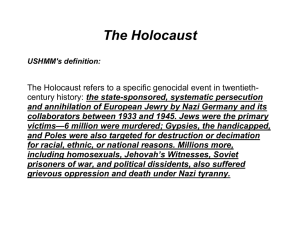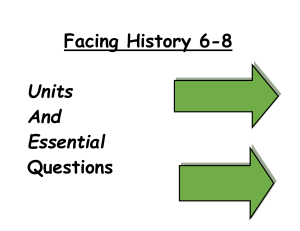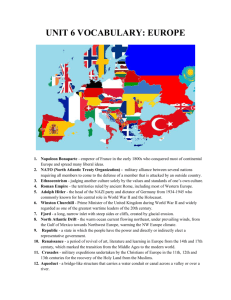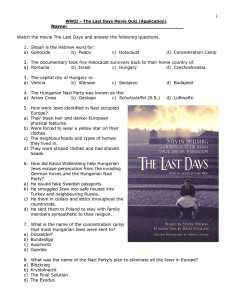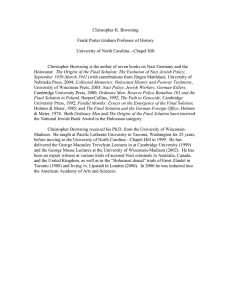Holocaust Research Topics: Sophomore Seminar Syllabus
advertisement
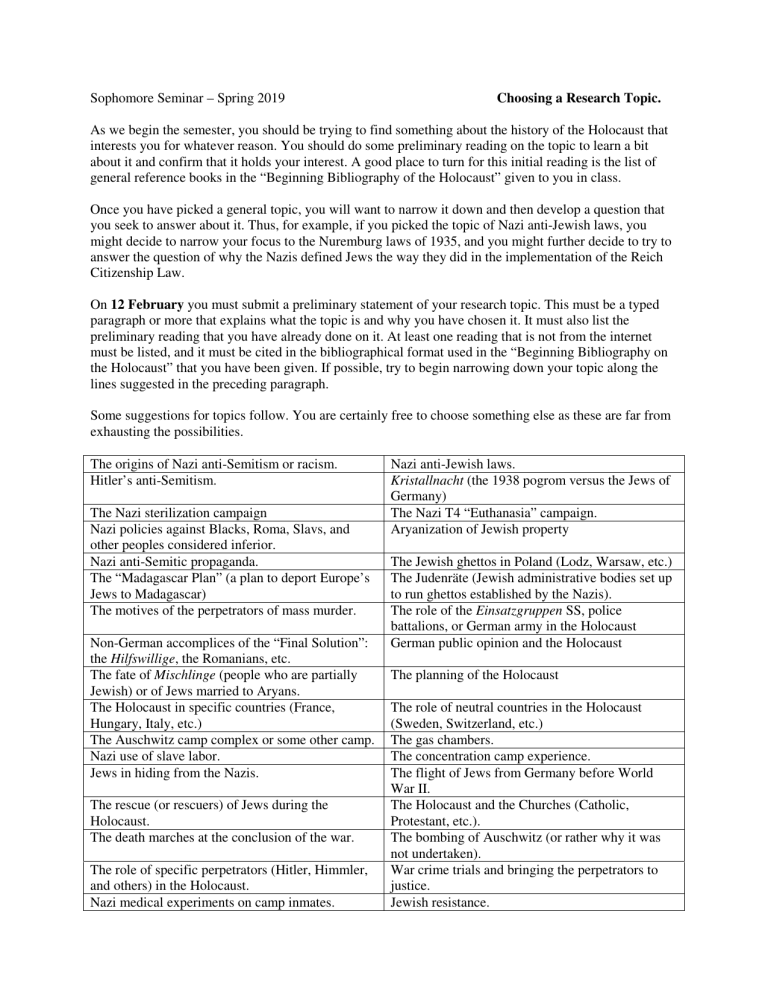
Sophomore Seminar – Spring 2019 Choosing a Research Topic. As we begin the semester, you should be trying to find something about the history of the Holocaust that interests you for whatever reason. You should do some preliminary reading on the topic to learn a bit about it and confirm that it holds your interest. A good place to turn for this initial reading is the list of general reference books in the “Beginning Bibliography of the Holocaust” given to you in class. Once you have picked a general topic, you will want to narrow it down and then develop a question that you seek to answer about it. Thus, for example, if you picked the topic of Nazi anti-Jewish laws, you might decide to narrow your focus to the Nuremburg laws of 1935, and you might further decide to try to answer the question of why the Nazis defined Jews the way they did in the implementation of the Reich Citizenship Law. On 12 February you must submit a preliminary statement of your research topic. This must be a typed paragraph or more that explains what the topic is and why you have chosen it. It must also list the preliminary reading that you have already done on it. At least one reading that is not from the internet must be listed, and it must be cited in the bibliographical format used in the “Beginning Bibliography on the Holocaust” that you have been given. If possible, try to begin narrowing down your topic along the lines suggested in the preceding paragraph. Some suggestions for topics follow. You are certainly free to choose something else as these are far from exhausting the possibilities. The origins of Nazi anti-Semitism or racism. Hitler’s anti-Semitism. The Nazi sterilization campaign Nazi policies against Blacks, Roma, Slavs, and other peoples considered inferior. Nazi anti-Semitic propaganda. The “Madagascar Plan” (a plan to deport Europe’s Jews to Madagascar) The motives of the perpetrators of mass murder. Non-German accomplices of the “Final Solution”: the Hilfswillige, the Romanians, etc. The fate of Mischlinge (people who are partially Jewish) or of Jews married to Aryans. The Holocaust in specific countries (France, Hungary, Italy, etc.) The Auschwitz camp complex or some other camp. Nazi use of slave labor. Jews in hiding from the Nazis. The rescue (or rescuers) of Jews during the Holocaust. The death marches at the conclusion of the war. The role of specific perpetrators (Hitler, Himmler, and others) in the Holocaust. Nazi medical experiments on camp inmates. Nazi anti-Jewish laws. Kristallnacht (the 1938 pogrom versus the Jews of Germany) The Nazi T4 “Euthanasia” campaign. Aryanization of Jewish property The Jewish ghettos in Poland (Lodz, Warsaw, etc.) The Judenräte (Jewish administrative bodies set up to run ghettos established by the Nazis). The role of the Einsatzgruppen SS, police battalions, or German army in the Holocaust German public opinion and the Holocaust The planning of the Holocaust The role of neutral countries in the Holocaust (Sweden, Switzerland, etc.) The gas chambers. The concentration camp experience. The flight of Jews from Germany before World War II. The Holocaust and the Churches (Catholic, Protestant, etc.). The bombing of Auschwitz (or rather why it was not undertaken). War crime trials and bringing the perpetrators to justice. Jewish resistance.
